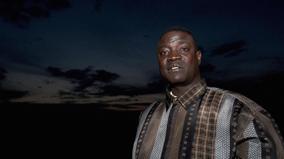Une femme de tête
Une femme de tête brosse le portrait émouvant d’une immigrante d’origine marocaine qui se bat pour ses droits et sa dignité. Ce documentaire est issu du projet La tête de l'emploi, qui vise à mettre fin au racisme direct et à la discrimination systémique dans les milieux de travail au Canada. Il cherche également à suggérer de nouvelles stratégies pour lutter contre le racisme auquel sont confrontés les minorités visibles et les autochtones.

Details
Une femme de tête brosse le portrait émouvant d’une immigrante d’origine marocaine qui se bat pour ses droits et sa dignité.
Ce documentaire est issu du projet La tête de l'emploi, qui vise à mettre fin au racisme direct et à la discrimination systémique dans les milieux de travail au Canada. Il cherche également à suggérer de nouvelles stratégies pour lutter contre le racisme auquel sont confrontés les minorités visibles et les autochtones.
-
participationBouchraOsmani HamidKhalidKhadija Benabdallah
-
directionMohammed Belhaj
-
NoneMohammed BelhajMaarten KroonenburgEnrique GarciaChristian Medawar
-
soundJuan Gutiérrez
-
picture editingChristophe Flambard
-
sound editorChristophe Flambard
-
titlesGaspard Gaudreau
-
online editingSylvain DesbiensDenis Gathelier
-
translationKathleen Fleming
-
subtitlingKathleen Fleming
-
marketing officerJenny Thibault
-
technical coordinationJean-François Laprise
-
administrationHélène RegimbalDenise DesLauriers
-
administrative teamMirabelle BélangerLise Lévesque
-
delegate producerHind Benchekroun
-
producerPatricia Bergeron
-
executive producerYves Bisaillon
Education
Ages 15 to 17
Diversity - Diversity in Communities
Ethics and Religious Culture - Religious Diversity/Heritage
History and Citizenship Education - Quebec Society Since 1980
Social Studies - Labour Studies
















